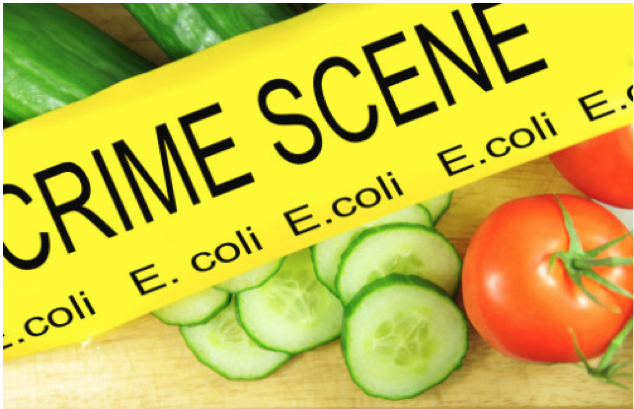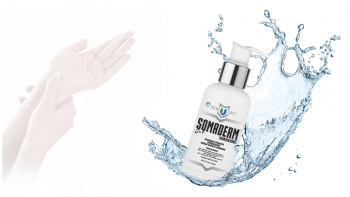WELLNESS--Anyone who has experienced food poisoning knows just how unpleasant it can be. The
CDC estimates that 76 million food poisoning or food borne illnesses occur a year in the US alone. The most common types of food poisoning are E. Coli, Campylobacter, Shigella, Salmonella, and Listeria.
Food poisoning can come from many sources, but the most common way to contract one of these nasty bugs is through raw foods from animals. With E Coli poisoning, 46 percent of cases come from beef that is either undercooked or spoiled. 66 percent of campylobacter comes from dairy and 50 percent of Listeria comes from fruit that is unwashed or spoiled. Other common sources are shellfish and sushi, eggs and dairy... and finally raw vegetables including lettuce.
It is important to wash hands when handling raw meats or animal products. Cross contamination is also a big problem, so when you are using the cutting board for raw meat, fish, or poultry it is crucial that you wash it with hot water and soap before using it for something else.
Food poisoning became such a problem that in 2011 the US government created an agency called the IFSAC or Interagency Food Safety Analytics Collaboration. This agency has been tasked with gathering data and improving the methods used to treat and prevent food poisoning. Hand washing is the first step to not spreading disease. Proper food handling and storage is the next step in avoiding food borne illnesses.
Keeping the refrigerator are the proper cold temperature is the first step to avoiding rancid food and illness. The fridge should be at around 40 degrees and a great way to be sure is to buy a thermometer that stays in the fridge. As a refrigerator gets older, they are less efficient in keeping the temperature inside the fridge steady. Keeping a thermometer in there will tip you off as whether or not you need to tweak the temperature. Also, spills in the fridge, especially meat or fish juice needs to be cleaned up properly and as quickly as possible. Keeping the inside of the refrigerator clean by periodically using soap and water is a great idea to keep it sanitized.
Cleaning cooking surfaces with soap and water before and after use is also recommended. When having cookouts it’s important to remember that food borne illness is more common and grow much faster in temperatures over 40 degrees F. If hand washing is tough because you are outside use moist towelettes to keep germs away from food. If the picnic goes for many hours after the food is cooked it is best to throw out any leftovers that have been sitting in the heat. Always keep raw foods away from cooked foods and wash surfaces thoroughly before using again for a different food. If you are serving hot food and guests are taking their time arriving, keep the hot food hot by ensuring that it is over 140 degrees F while it sits.
The big question I get from my patients is “is sushi safe?” The answer isn’t that easy. For starters people with compromised immunity or pregnant women are better off avoiding sushi all together.
Sushi can be dangerous and in the past year there have been cases of tapeworm found in raw salmon in sushi brought in from Asia Pacific. Over time this parasite will deplete the B vitamin in the body and wreak havoc on the digestion. The risk is not high, but it is there, and the longer the fish has been out of the water the more likely it will have a food borne illness.
If you’re going to eat sushi go to a quality sushi restaurant and ask the right questions. For starters find out how long the fish has been out of the water. When traveling in hot places like the desert, it may be prudent to skip sushi all together.
Food poisoning is a serious condition and can lead to illness and death in immuno-compromised individuals, elderly people and the fetus of unborn babies. Following the above mentioned guidelines will help you to avoid getting sick or causing your friends and family unnecessary illness.
(Christian Cristiano is an acupuncturist in LA, TV host of Wellness for Realists and writes on wellness regularly for CityWatch. Christian can be reached at 310.909.6956 twitter: @CristianoWFR)
-cw
























